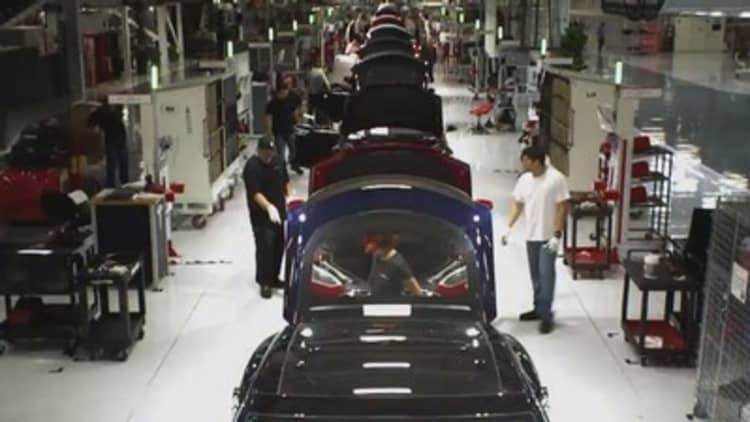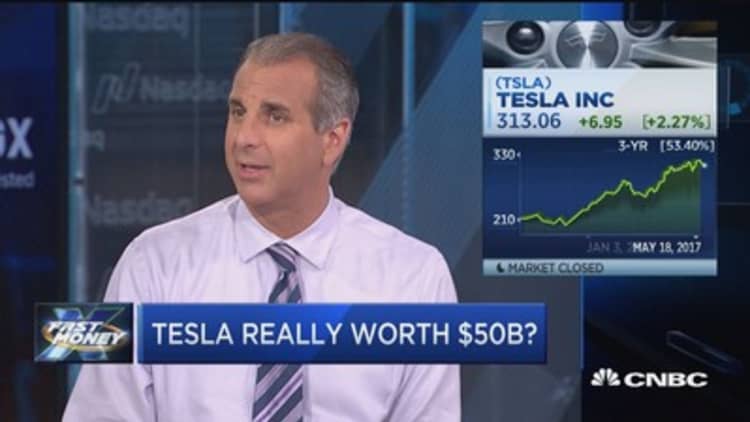Tesla can break even, or perhaps turn a profit, on its Model 3 sedan, if enough of its customers spend a few extra thousand dollars on options, according to a new report from UBS.
Analysts from UBS's Global Automobiles practice estimate that Tesla will incur an EBIT (earnings before interest and taxation) loss of $2,800 per Model 3 sold at its base price of $35,000 but the company will break even if it can achieve an average sale price of $41,000 — a level UBS thinks will most likely be exceeded.
The UBS analysts developed their estimates after tearing down a new Chevrolet Bolt — a car that they say shares many similarities with Tesla's upcoming Model 3.
Many skeptics have said Tesla may not be able to make money on the Model 3, which is priced steeply lower than the company's high-end cars but still makes use of much of the same technology and materials.

Unfortunately for Chevrolet, UBS estimated that GM loses $7,400 (EBIT) on every Bolt sold today, mainly due to the lack of scale.
That loss comes even after the group found that the Bolt's electric powertrain is $4,600 cheaper to produce than UBS had previously thought. Still, UBS says GM and all electric-vehicle makers have the potential to reduce costs further.
This means the total cost of owning an electric vehicle can match that of an internal combustion engine car much sooner than UBS had previously estimated, creating an "inflection point for demand."
Therefore the group is raising its expectations for global electric-vehicle sales in 2025 by about 50 percent to 14.2 million, or about 14 percent of global car sales. Currently, worldwide sales of electric vehicles are around 0.7 percent of all new cars sold, according to research firm IHS Markit.
The things that could prevent this demand from growing include low or no political support for electrification, low gas prices, or a lack of understanding over the total cost of ownership among cars. Many customers still tend to focus on sticker prices.
Watch: Is Tesla really worth $50B?



